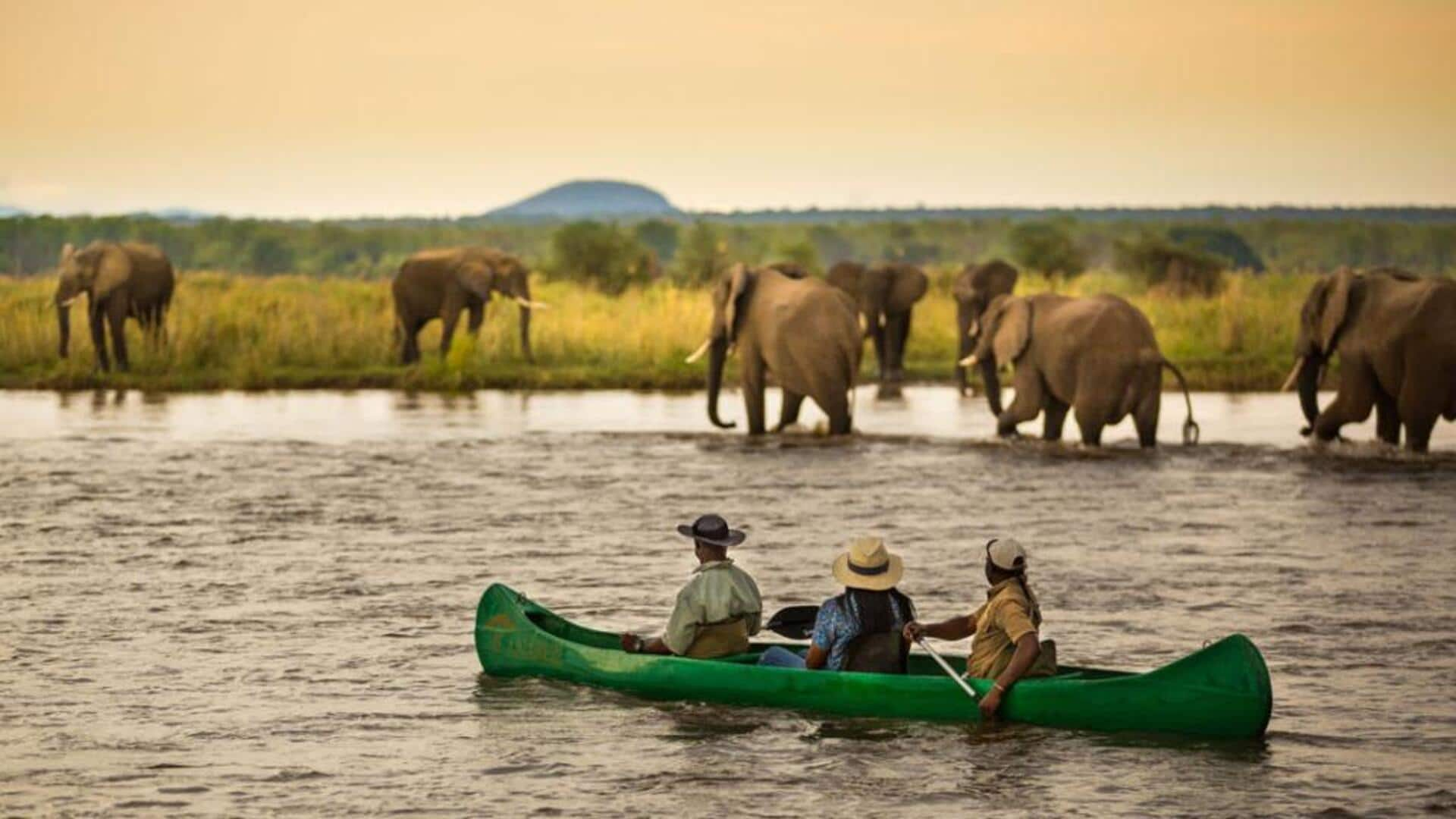
Canoeing the Zambezi River's wildlife corridors
What's the story
Canoeing down Africa's fourth-longest river, the Zambezi, is a unique adventure that immerses you in the heart of the continent's wildlife.
This trip offers more than just stunning landscapes; it's a journey into the pulse of nature, as the river serves as a lifeline for national parks and game reserves.
Preparation
Planning your trip
Before you decide to go all in, do your homework and plan accordingly.
The optimal times to visit are during the dry seasons, from May to October, when wildlife gathers around the river.
Get all the necessary vaccinations, and travel insurance.
And, book through a reputable tour operator for added safety and convenience.
Wildlife encounters
What to expect
Canoeing down the Zambezi River provides a unique and thrilling perspective for viewing wildlife in their natural habitat.
Elephants, hippos, crocodiles, and a plethora of bird species will be your companions.
The early mornings or late afternoons are magical times as animals congregate to drink or bathe in the river.
Challenges
Navigating the rapids
The Zambezi River is a rollercoaster ride of white-water action, with rapids ranging from grade one to five.
While some stretches are peaceful and beginner-friendly, others are wild and require a seasoned hand.
It's crucial for rafters to know their comfort and skill level and select the river sections accordingly.
Gear up
Essential gear and safety tips
You should not compromise on safety while canoeing on the Zambezi River.
Make sure you have the right gear: life jackets are a must, helmets are needed for rougher sections, waterproof bags will keep your stuff dry, and don't forget sun protection (hats and sunscreen) and insect repellent.
Follow your guide's instructions and don't wander off. This is not the place to get lost!
Conservation
Respectful interaction with nature
While relishing this once-in-a-lifetime experience, please remember to be a responsible tourist by leaving no trace.
Adhere to designated paths, refrain from disturbing animals or their environments, and ensure you remove all litter.
Contributing to conservation initiatives or local community programs in the Zambezi region can further help protect this awe-inspiring ecosystem for years to come.